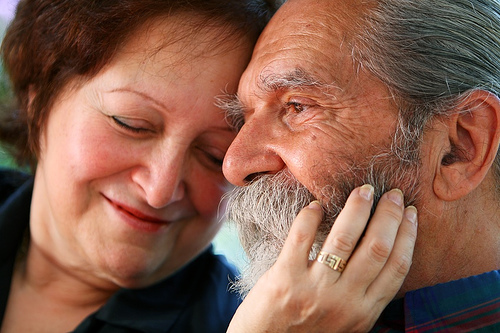When to Get Hospice Care

Determining when someone qualifies for hospice care can be challenging. In my work in hospice I often encountered physician's who were overwhelmed by the question of whether or not the time was right for hospice for their patient. I was told, "I am not God. How can I know how long the patient will live?"
Now more than ever people are wanting to experience the end of their life in the peaceful setting of their own home surrounded by the ones they love. With this in mind, the task of estimating life expectancy (medical prognistication) has become very important. More and more people are making the shift from experiencing death in the hospital or intensive care unit to dying in their own home.
The good news is that it is not just up to the doctor to recommend hospice. Patients and their families can inquire about hospice care at any time. The following are some easily identified indicators that hospice care may be appropriate.
What Diseases Does Hospice Help With?
Hospice can help with many illnesses. Some of them are:
- Alzheimer's Disease
- Cancer
- Congestive Heart Failure
- Coma
- Dementia
- Emphysema (COPD)
- Heart Disease
- HIV/AIDS
- Kidney Disease
- Liver Disease
- Lou Gherig's Disease (ALS)
- Lung Disease
- Stroke
- and more
How to Know if You Need Hospice
My best advice to patients and families is to consider starting hospice care when any of the following occur:
- The patient is diagnosed with a terminal (incurable) illness;
- The doctor says that continued medical treatments are not working;
- A chronic illness is no longer responding to medical care and treatment;
- The patient indicates a desire for "comfort care only;"
- The patient has a doctor's medical order that reads, "Do not hospitalize;"
- The patient has a DNR (Do Not Resuscitate) order;
- The patient is experiencing frequent hospitalizations and is worse after each hospitalization.

I know someone who may need hospice.
Other Indications That Hospice is Needed
Not all people in need of hospice fit into an easily identified hospice medical diagnosis. Most often, those that need hospice need it because they have multiple medical conditions (co-morbidities) that are inter-related. For example, a hospice patient may be someone who has heart failure in addition to kidney failure and also has dementia. So, while the patient may not qualify for hospice care due to heart failure, he may qualify due to the multiple illnesses acting on his body.
Some signs that may indicate that hospice care is appropriate are:
- Multiple hospitalizations and ER visits within the last 6 months;
- Unexplained weight loss;
- Frequent falls;
- Lack of appetite;
- Multiple pressure ulcers (bed sores);
- Progressive functional decline (goes from walker to wheelchair, etc).
To be sure if hospice is appropriate, contact your doctor or local hospice. A hospice nurse can provide a free consultation at your home.
What is a Good Death?
Although no one really wants to think about dying, it is important to plan for it if we want to have a "good death." Knowing when to begin hospice care can open the door to a multitude of medical resources available for the patient and family. If you think hospice is right for you or someone you love, don't hesitate to ask your doctor or local hospice. If it's too early, they will tell you. But, if the time is right, hospice care can begin.







